Came across this model, had to share! You know I love me a good visualization of a model, and I think this one is brilliant to help support thinking about sustainability teaching in a holistic way!
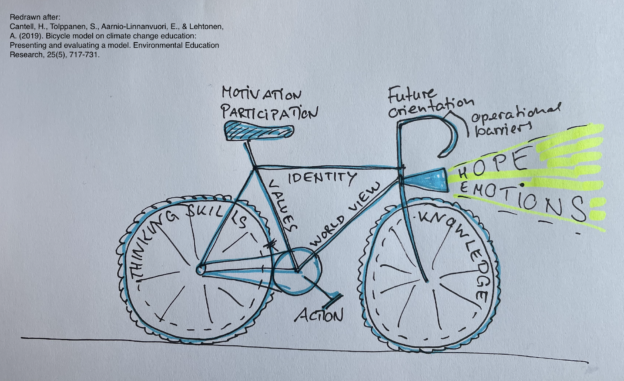

Came across this model, had to share! You know I love me a good visualization of a model, and I think this one is brilliant to help support thinking about sustainability teaching in a holistic way!
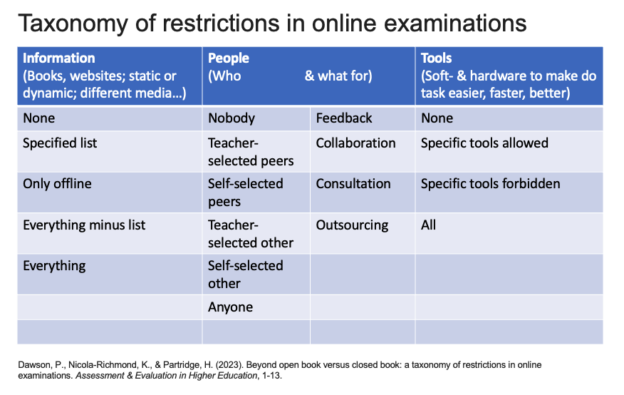
If we want to do a valid assessment of what a specific student can do, we need to know what information they had available when producing the artifact we are evaluating, who they could communicate with, and what tools they had access to. And we might want to restrict access to some or all of those, to some degree or completely. Dawson et al. (2023) develop a taxonomy of restrictions that I find really useful as an overview!
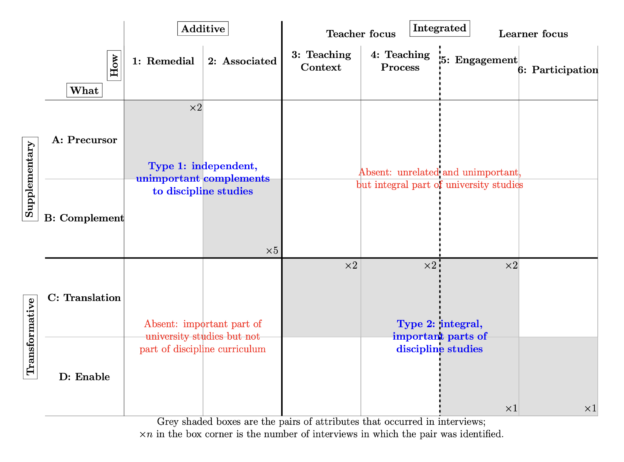
Haha, I ended my post this morning with “…but at that point I lost interest”, and apparently that’s a great call to action! Kirsty Dunnett, faithful guest blogger on my blog, volunteered to send me the summary of what I had missed! Thanks for sharing, Kirsty, the floor is yours:
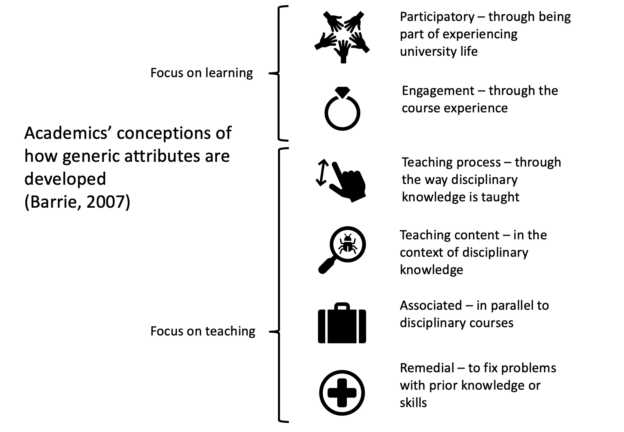
When my colleague sent this article to a student we are collaborating with the other day, I decided that it was about time that I read it, too. Last time I looked at it, it seemed quite inaccessible, so I put it on the “for when I have time” pile. But reading it this time round, I actually started seeing that the framework presented in Barrie (2007) is actually really useful for teachers and academic developers. So here is my summary (including my visualizations of my understanding, because I still find their presentation quite hard to follow).
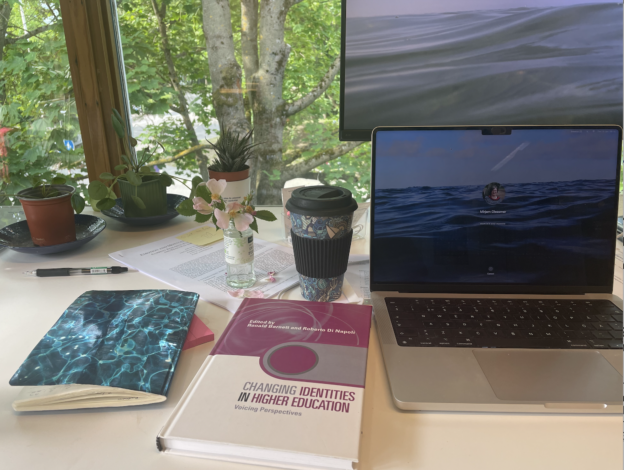
This week, I gave a presentation on “supporting teachers at LTH to teach about sustainability” to an EU project with partners from universities in lots of different countries, and in the beginning I had to explain what my role of “academic developer” even entails, since this kind of job doesn’t exist at many universities. And even though I didn’t refer to the literature yesterday, the Handal-description of a “critical friend” is pretty close to how I see myself!
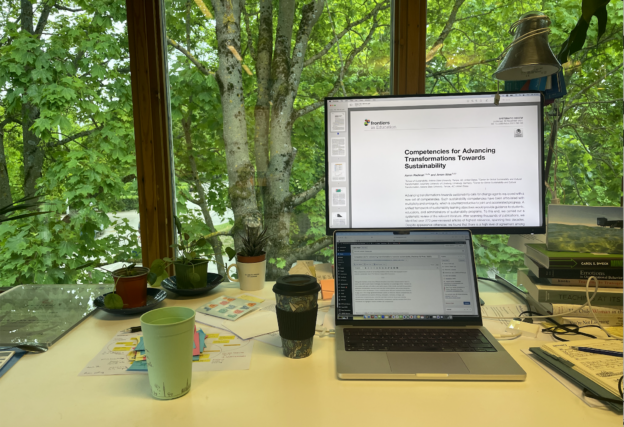
What competencies should we be teaching students so they will be best equipped to work towards a sustainable future? The (really useful, me thinks!) Redman & Wiek (2021) framework.
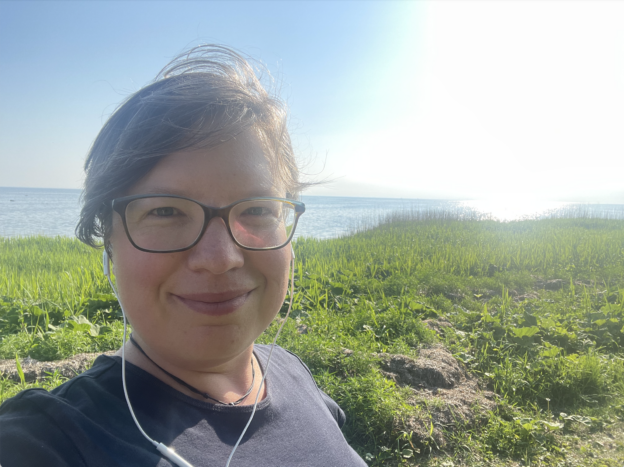
Yesterday I went on a lovely after-work walk with one of my favorite podcasts (check them out, all highly recommended!), and I want to mention two podcast episodes Iistened to recently, through the lens (mixing my metaphors here, but you get the idea) of how to show students that they matter to us as teachers. Continue reading
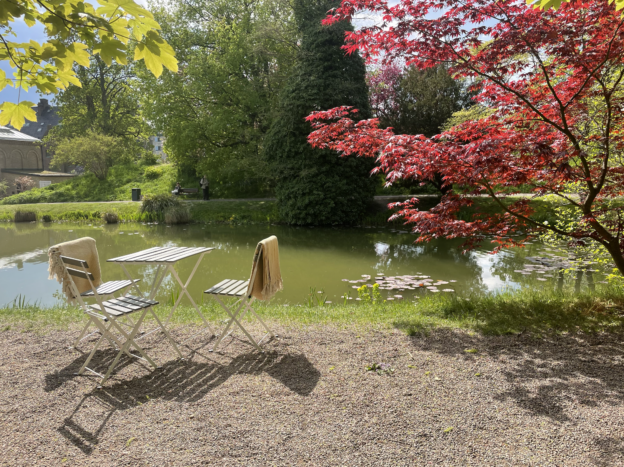
This article has repeatedly been making waves in my circles over the last couple of months: “How well-intentioned white male physicists maintain ignorance of inequity and justify inaction” by Dancy & Hodari (2022). My take-away in a nutshell: Ignorance is bliss. It’s totally worth a read!
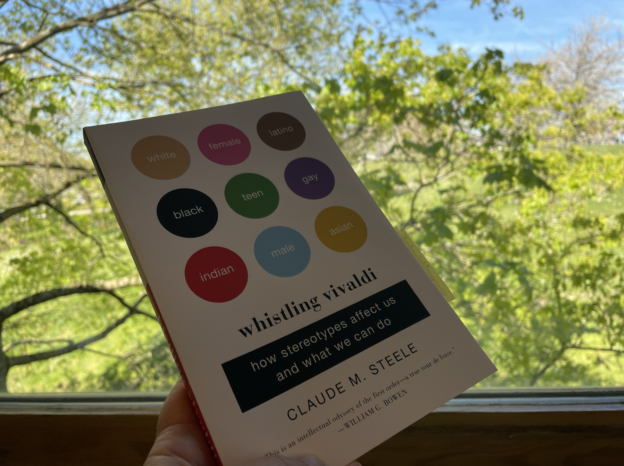
As I was gathering my favorite three books on learning and teaching to wave at the participants of our “introduction to teaching and learning” course today, I realized I never summarized one of them: “Whistling Vivaldi: How stereotypes affect us and what we can do” (Steele, 2011), which is what I am doing below. (The other two? “Communities of Practice“, and “Small Teaching“)
Another article that I just re-read for my teaching next week is Kugel (1993)’s “how professors develop as teachers”. Kugel describes the development of teachers in 6 stages that are very relatable and thus great to discuss, both to identify a current stage for yourself (and possibly teachers you encounter?), to reflect on that, and to get ideas for future developments: